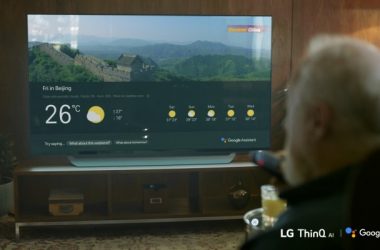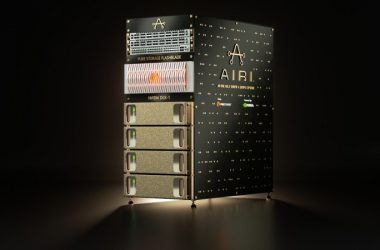
Cisco Systems Chairman and CEO John Chambers demonstrated how the company’s TelePresence videoconferencing technology could be developed into a consumer product, showing off the long-awaited system at a press conference ahead of the International Consumer Electronics Show in Las Vegas.
The home TelePresence system that Chambers demonstrated included a set-top box, remote control, high-definition camera and microphone. The system is designed to work with existing high-definition televisions, with the camera mounted above the screen.
"I love anything that loads networks, but it’s the experience that makes this unique," Chambers said.
To demonstrate how the technology works, Chambers made a brief video call to his wife, Elaine, complimenting her on the purple dress that she wore for the demonstration. But Cisco believes the system can be used for more than just communications.
Other possible applications for the system include health care. Chambers showed how a consumer TelePresence system could be linked with medical devices, such as a glucose meter that tracks blood-sugar levels for people with diabetes. That data can then be shared with a doctor who can interact with the user over the high-definition video link.
Cisco also sees the system working as a marketplace for services, allowing users to connect with tutors, financial advisers, or a yoga instructor.
Cisco has been promising a consumer version of TelePresence for several years. In 2007, Cisco said a consumer version of TelePresence would be ready within two to three years for about US$1,000.
This time around, Cisco didn’t offer any details of when it plans to release home TelePresence as a product or say how much the product will cost when it’s released. But the company is getting closer to commercialization of the technology. In the coming months, Cisco will begin trials of the home TelePresence technology with two operators, Verizon in the U.S. and France Telecom — presumably one of the final steps before a commercial product is released.
Cisco isn’t the only company that sees demand for personal high-definition videoconferencing applications that can be used with a television.
On Tuesday, Skype announced that users can now make high-definition video calls using its software, provided they have the required equipment, including sufficient processing power and a high-speed Internet connection. In addition, Panasonic and LG plan to include Skype’s software in their high-definition televisions, allowing users to make video calls.
These televisions, which will ship during the middle of this year, will be offered with optional high-definition cameras and microphones.
No word on when a commercial version of the product will be released or how much it will cost





